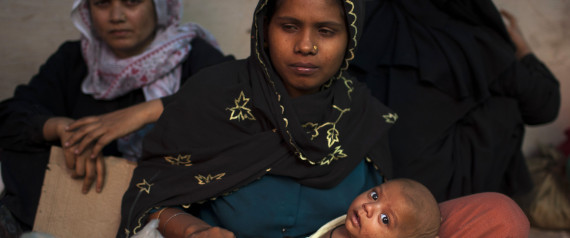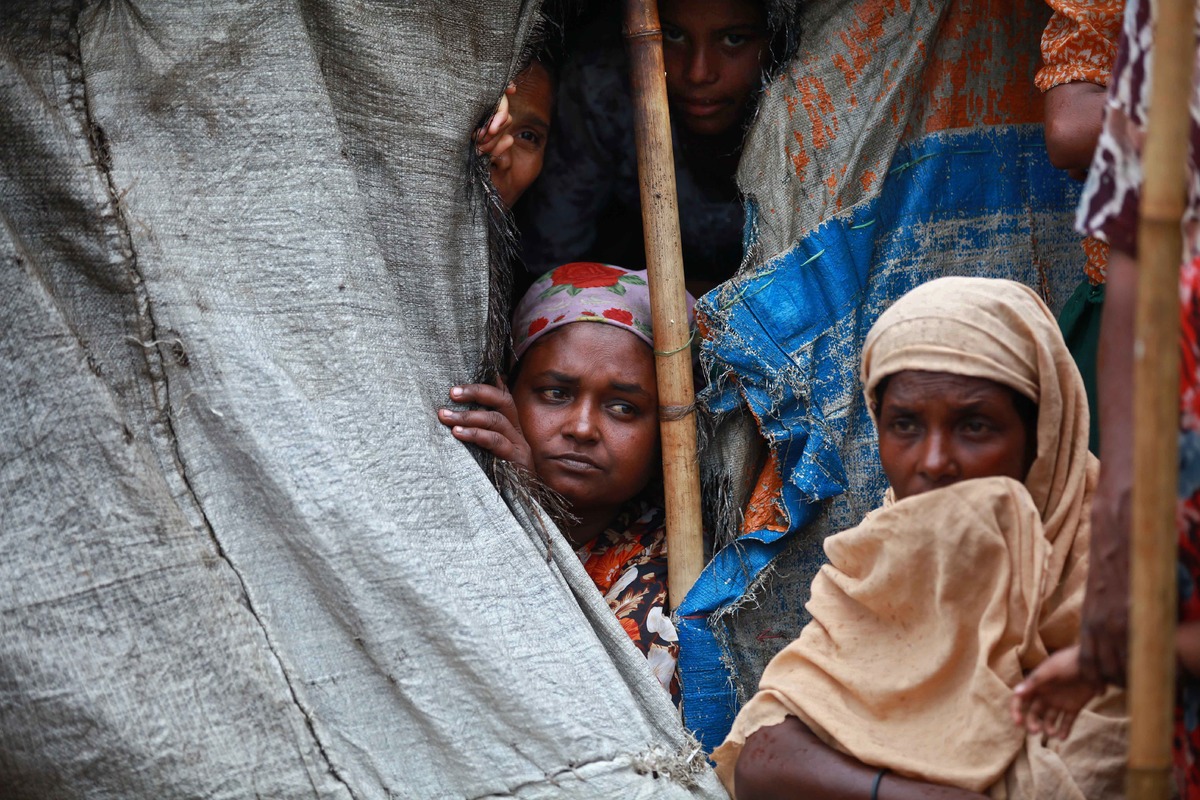 Bangladeshi nationals found on two boats by the Burma Navy in May are repatriated on Tuesday. (Photo: IPRD)
Bangladeshi nationals found on two boats by the Burma Navy in May are repatriated on Tuesday. (Photo: IPRD)RANGOON — Police in Rangoon Division's Hmawbi Township have detained 10 Rohingya Muslims and the driver of the vehicle in which they were found riding, according to local law enforcement.
A police officer in Hmawbi Township told The Irrawaddy that local authorities were holding the internal migrants, but he declined to provide specifics of the case over the phone.
Citing a police source, a BBC Burmese radio report on Wednesday said each of the Rohingya paid a 1.2 million kyats (US$940) bribe to the Burma Army in order to smuggle them to Rangoon from two camps for internally displaced persons (IDPs) in Arakan State's Sittwe Township.
The 10 men and women were part of a larger group of 29 Rohingya, according to The Voice daily, with two other vehicles having thus far evaded authorities.
The Rohingya minority in Arakan State are subject to severe restrictions on movement, and more than 100,000 remain in IDP camps after deadly violence in 2012 between Arakanese Buddhists and Muslims drove them from their homes.
Meanwhile, 125 migrants were deported from western Burma to Bangladesh on Tuesday, as more than 100 people remain in shelters near the border, potentially awaiting the same fate, according to a local immigration official.
"We deported them at 2 pm yesterday after two country officers signed an agreement. There are even more, 101 people, remaining who are awaiting deportation," Khin Soe, an immigration officer in Sittwe, told The Irrawaddy on Wednesday.
Two separate boats packed with refugees and economic migrants were discovered by the Burma Navy in May, seeing more than 900 people brought onto Burmese soil. Burmese immigration authorities have been holding the migrants at temporary shelters in Taung Pyo Let Wai village in Arakan State's Maungdaw Township, where their nationalities are undergoing scrutiny.
The governments of the two countries have been cooperating in the process, which has seen hundreds of Bangladeshi nationals repatriated in several batches since the boats carrying them were brought to shore. At least 187 of the boats' passengers were found to be from Burma.
Earlier this year, thousands of migrants from Bangladesh and refugees from Arakan State began washing up on the shores of other Southeast Asian nations after human traffickers abandoned them at sea. Those from Burma were predominantly Rohingya fleeing state-sanctioned persecution and hardscrabble IDP camp existences in the country's western coastal state.





 Findings from the authors’ three-year research on the plight of the Rohingya lead us to conclude that Rohingya have been subject to a process of slow-burning genocide over the past thirty-five years. The destruction of the Rohingya is carried out both by civilian populations backed by the state and perpetrated directly by state actors and state institutions. Both the State in Burma and the local community have committed four out of five acts of genocide as spelled out by the 1948 Convention on the Punishment and Prevention of the Crime of Genocide. Despite growing evidence of genocide, the international community has so far avoided calling this large scale human suffering genocide because no powerful member states of the UN Security Council have any appetite to forego their commercial and strategic interests in Burma to address the slow-burning Rohingya genocide.
Findings from the authors’ three-year research on the plight of the Rohingya lead us to conclude that Rohingya have been subject to a process of slow-burning genocide over the past thirty-five years. The destruction of the Rohingya is carried out both by civilian populations backed by the state and perpetrated directly by state actors and state institutions. Both the State in Burma and the local community have committed four out of five acts of genocide as spelled out by the 1948 Convention on the Punishment and Prevention of the Crime of Genocide. Despite growing evidence of genocide, the international community has so far avoided calling this large scale human suffering genocide because no powerful member states of the UN Security Council have any appetite to forego their commercial and strategic interests in Burma to address the slow-burning Rohingya genocide.
